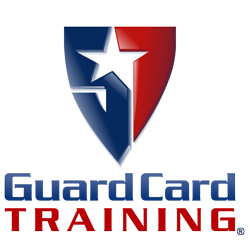
How to become a BSIS-APPROVED unarmed security guard instructor in California
As a provider of approved BSIS training materials, Security Training Center® receives many calls and emails regarding the process of establishing a BSIS-licensed training facility. This page was established to address the most common questions and misconceptions about facility licensing.
No Unarmed Instructor License Required
There is no "license" to teach the Powers to Arrest and Appropriate Use of Force (unarmed security guard card) course. Rather, any designated employee may teach the course so long as that employee "is knowledgeable in the power to arrest as set forth in the Powers to Arrest and Appropriate Use of Force Training Manual."
This generally means that the designated employee has completed the Powers to Arrest and Appropriate Use of Force and holds a valid guard card.
Private Patrol Operators and Proprietary Private Security Employers
Private Patrol Operators (PPO) and Proprietary Private Security Employers (PPSE) are only allowed to teach their direct (internal) employees. They are not permitted to teach to the general public.
In order to teach to the general public, the PPO/PPSE must also hold a Training Facility - Firearms (TFF) or Training Facility - Baton (TFB).
Private Patrol Operators and Proprietary Private Security Employers ARE NOT allowed to teach any weapon, which includes chemical agents.
Teaching the General Public
In order to teach to the general public, even unarmed courses, the instructor must hold a Training Facility - Firearms (TFF) or Training Facility - Baton (TFB) and the matching Training Instructor - Firearms (TIF) or Training Instructor - Baton (TIB).
California Code of Regulations
Title 16. Professional and Vocational Regulations, Division 7. Bureau of Security and Investigative Services, Article 6. Private Security Services, Alarm Company Operators, Guards, Patrolperson, Alarm Agents (Installer/Responder), §628. Training in Exercising the Powers to Arrest.
(b) Uniformed employees of private patrol operators and responding alarm agents shall take and successfully complete the training course and examination in the exercise of powers to arrest. An employee must receive a score of 100% on said examination in order to successfully complete said course. The course of training and administration of the examination may be given by a training school approved by the Bureau or by the employer or such uniformed employees provided that such employer has a designated instructor, and such instructor is knowledgeable in the power to arrest as set forth in the Power to Arrest and Appropriate Use of Force Training Manual dated July 2023, which is exempt from the Administrative Procedure Act (California Government Code, section 11340 et seq.) pursuant to Business and Professions Code Section 7583.7, issued by the Bureau and is able to assist employees who cannot read or write.
(Emphasis added)
Course Materials
Back to topThe California BSIS provides mandatory training materials and examinations the initial 8-hours standard course in the Powers to Arrest and Appropriate Use of Force. The remaining 32-hours of full guard card must be created and submitted to the BSIS for review and approval. This process entails submitting the curricula, lesson plans, manuals, worksheets, exams and presentations to the BSIS for review and approval.
Coursework for the 20-hours School Security Officer and 16-hours Proprietary Security Guard courses must be created and submitted to the BSIS for review and approval. This process entails submitting the curricula, lesson plans, manuals, worksheets, exams and presentations to the BSIS for review and approval.
Licensing Training Materials
Trainers and facilities are not required to write their own programs. It is possible to license BSIS-approved training materials from other, approved training providers. Costs and fees vary depending upon the provider.
You may also be interested in:
Disclaimer
Back to topSecurity Training Center® is not a government department or organization. The information and links on this page and site are provided as a courtesy. Although great pains have been taken to collect the information provided here, Security Training Center® does not guarantee the accuracy, currency, or completeness of the information provided.
All questions regarding trainer licensure, applications, notices, and announcements should be directed to the Bureau of Security and Investigative Services (BSIS):
https://bsis.ca.gov/webapplications/apps/contact/index.shtml
Information provided on this site is for educational purposes. It is not legal advice.
